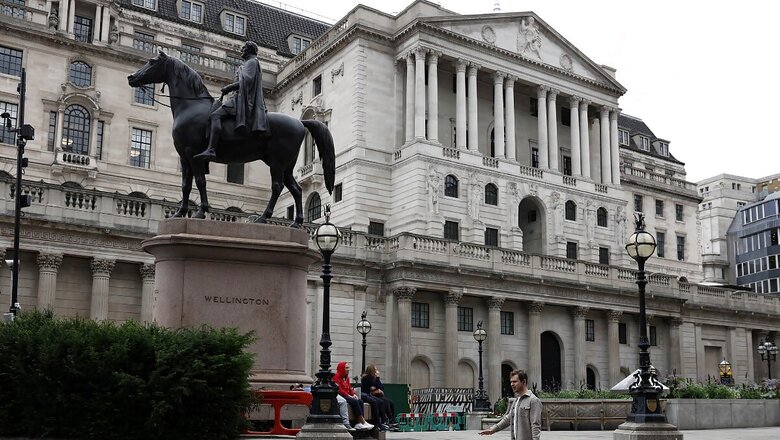
views
The Bank of England kept its main interest rate unchanged on Thursday at the 15-year high of 5.25 per cent and indicated that borrowing costs will likely remain at these sort of elevated levels for a while, especially if oil and gas prices increase sharply in light of the conflict between Israel and Hamas.
In a statement, the bank’s nine-member Monetary Policy Committee indicated that inflation, as measured by the consumer price index, is set to fall quite dramatically in the next month but will need time to get toward its 2 per cent target rate over the coming year.
We’ve held rates unchanged this month, but we’ll be watching closely to see if further rate increases are needed, Bank of England Governor Andrew Bailey said.
Minutes to the meeting showed that three of the nine members of the policy committee backed a quarter-point increase to 5.5 per cent in order to push down harder on the inflation rate, which stood at 6.7 per cent in the year to September.
In economic projections accompanying the decision, the bank said inflation is set to fall to below 5 per cent in October as domestic energy bills fall. However, it cautioned that oil and gas prices may start to rise again in light of the Israel-Hamas war.
Officials had previously thought that inflation would return to the 2 per cent target by the second quarter of 2025. But they revised the forecast on Thursday to say that inflation would remain above 2 per cent until the final quarter of 2025.
The bank in September ended a nearly two-year run of interest rate rises.
The US Federal Reserve and the European Central Bank have also held interest rates over the past week.
The Bank of England, like other central banks, raised interest rates aggressively from near zero as it sought to counter price rises first stoked by supply chain issues during the coronavirus pandemic and then Russia’s invasion of Ukraine, which pushed up food and energy costs.
Higher interest rates, which cool the economy by making it more expensive to borrow and bearing down on spending, have contributed to bringing down inflation worldwide.
Though most economies have avoided falling into recession, fears remain that the British economy could start to see output shrinking in coming months, hardly the best backdrop for the governing Conservative Party ahead of a general election.
The bank predicted on Thursday that a recession was unlikely but that growth will be modest, at best.




















Comments
0 comment